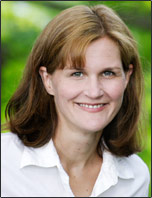There are dozens of measures of association. Even just correlations come in many flavors: Pearson, Spearman, biserial, tetrachoric, squared multiple, to name a few.
And there are many measures beyond correlation.
You probably learned many of these way back in intro stat, then promptly forgot about them. That may be reasonable, but they do pop up as important within the context of other, more complicated statistical methods. A strong foundation in the measures of association makes those other methods much easier to understand.
In this webinar, we’re going to re-examine many of these measures, see how they fit together (or don’t), and talk about when each one is useful.
Note: This training is an exclusive benefit to members of the Statistically Speaking Membership Program and part of the Stat’s Amore Trainings Series. Each Stat’s Amore Training is approximately 90 minutes long.
About the Instructor

Karen Grace-Martin helps statistics practitioners gain an intuitive understanding of how statistics is applied to real data in research studies.
She has guided and trained researchers through their statistical analysis for over 15 years as a statistical consultant at Cornell University and through The Analysis Factor. She has master’s degrees in both applied statistics and social psychology and is an expert in SPSS and SAS.
You'll get access to this training webinar, 130+ other stats trainings, a pathway to work through the trainings that you need — plus the expert guidance you need to build statistical skill with live Q&A sessions and an ask-a-mentor forum.

Leave a Reply